Leo Tolstoy was born in 1828 in old Imperial Russia to an old aristocratic family (the Tolstoys) and grew up on the family estate 120 miles south of Moscow. They had serfs and everything.
His mother died when he was two and his father died when he was seven so he was pretty much brought up by his aunt who educated him at home. Aunt Aleksandra.
At the age of 16 he was off to university in Kazan, as a good Tolstoy would do. It didn’t work out, however, he dropped out during his second year. His instructor remarked that he was “"both unable and unwilling to learn". Ha!
He went home for a while and then started hanging out at all the cool places in Moscow and St. Petersburg, living a real bohemian lifestyle with his family’s money. He also started writing during this time and published his first novel Childhood about, guess what, his childhood. It was a big hit.
"Will the freshness, lightheartedness, the need for love, and strength of faith which you have in childhood ever return? What better time than when the two best virtues -- innocent joy and the boundless desire for love -- were the only motives in life?"
At 23 he was a literary phenom, recognized as an up and coming figure in the literary world. He went on to write Boyhood and Youth and they were both well received. He sold lots of copies but he also managed to accumulate a large gambling debt. He decided to run off and join the army.
He became an artillery officer in the Crimean War that was being fought between Russia and a European alliance consisting of Britain, France and the Ottoman Empire. No wonder they lost. He witnessed the siege of Sevastopol that lasted from 1854–55. He saw alot. Death and destruction. After the war he quit the army and started city-hopping around Europe.
On a trip to Paris in 1857 he witnessed an execution that affected him deeply. They chopped the guy’s head off and he was dead. He wrote afterwards,
"The truth is that the State is a conspiracy designed not only to exploit, but above all to corrupt its citizens ... Henceforth, I shall never serve any government anywhere."
He met Victor Hugo, author of Les Misérables and the French anarchist Pierre-Joseph Proudhon. He transformed, somehow, from a privileged society author to a non-violent Christian anarchist, his philosophy based on a literal interpretation of Jesus’ words, specifically the Sermon on the Mount.
What is the Sermon on the Mount exactly? Well, the essence of it is this:
Blessed are the poor in spirit, for theirs is the kingdom of heaven.
Blessed are those who mourn, for they will be comforted.
Blessed are the meek, for they will inherit the earth.
Blessed are those who hunger and thirst after righteousness, for they will be filled.
Blessed are the merciful, for they shall be shown mercy.
Blessed are the pure in heart, for they will see God.
Blessed are the peacemakers, for they will be called the sons of God.
The Beatitudes. Pretty radical stuff. Society at large and institutionalized religion in particular were corrupt and hypocritical in his mind and he wanted no part of them. He ended up giving away his money and went to live with the peasants, He founded schools so that their children could learn to read and write which he saw as a primary way of improving oneself.
Tolstoy's concept of non-violence or ahimsa was bolstered when he read the ancient Indian text of Tirukkural, all about virtue, wealth and love. His ideas influenced Mahatma Gandhi, the liberator of India, who used the power of non-violence to defeat the British. He indirectly influenced Martin Luther King Jr., who used non-violence as the guiding light of the Civil Rights Movement in America.
Others who followed a similar path around the same time were Alexander Herzen, Mikhail Bakunin and Peter Kropotkin, all contemporaries of Tolstoy and all from the landed class, moneyed, owners of serfs. That’s pretty interesting, right? All the 19th Century Russian revolutionaries were rich landowners, yet they saw the need for change and tried to make it happen. Weird. Those were revolutionary times and the most revolutionary revolutionaries in Russia, for all their revolutionary anarchist fervor, were the privileged and educated land owners. Their revolution didn’t turn out quite so well in the end. They just ended up with a new czar and called him the president. Oh well.
So why am I writing about Leo Tolstoy? Why do I find his life so remarkable? The reason I find his life so remarkable is because it’s remarkably similar to my own. I didn’t attend Kazan University in Imperial Russia, but I did attend the Grand Rapids Baptist Bible College and Seminary in Michigan and dropped out in my second year. I lost my faith and traveled the world trying to find truth. I feel like an anarchist when I look at the serious absurdities of my society. We attack people to bring peace. Huh? What? Are you sure that’s a good idea? I was into Gandhi and non-violence as a young revolutionary. I became a vegetarian (like Tolstoy) and endeavored to simplify my life. I’m still trying to simplify my life. I’m trying to be kind.
And of course we are both writers and admirers of literature. In his case the 1400 page mega-novel War and Peace and many other books, short stories, poetry, diary entries and critiques on various subjects. In my case a somewhat less well endowed portfolio but not less respectable.
I’m with you all the way, Leo. Even though I live in a proper house and buy groceries at the grocery store I endeavor to grow my own food and live like a peasant, with a light footprint on the planet, in harmony with the stars and the moon (which is probably how those old Russian serfs lived), aware of the trees and the rain and the sky and the streams and the stream beds and the flowers and the leaves. Tolstoy admired their closeness to nature and tried to emulate it. His wife got mad when he refused to even receive the royalties for his books (which she had toiled on as well, transcribing multiple copies of War and Peace until he finally got it right) but he was determined to live his faith or his beliefs or his philosophy, whatever you want to call it. He completely dropped out of the status quo where he had been a main player and lived his own life on his own terms (more or less). I respect that.
Actually, the original idea for this post came from a Facebook post somebody posted up. I thought it was great and started researching him. This is how it went:
Here’s me in the cafe trying to look like Leo Tolstoy.
music :: 29:25 My Inner Shaman (Jai Cuzco Remix) by Sariel Orenda, an amazing Bulgarian musician

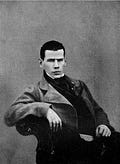




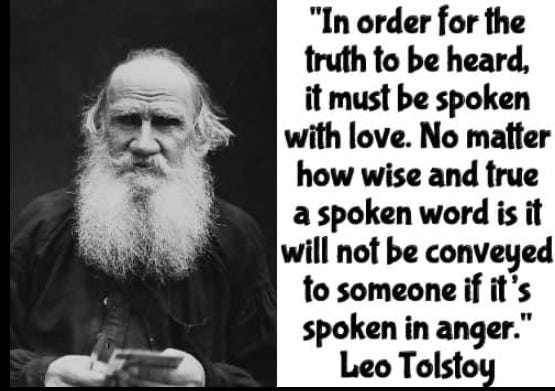

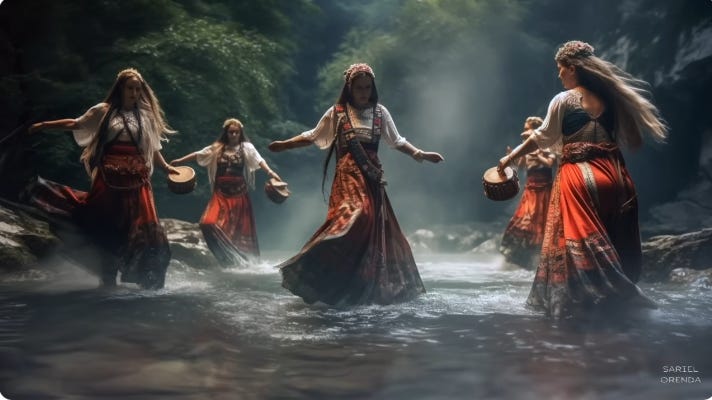


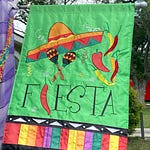
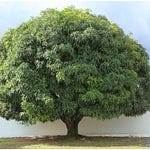

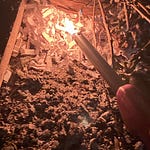
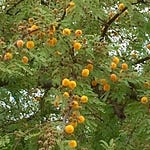

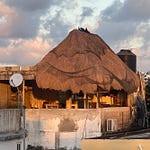
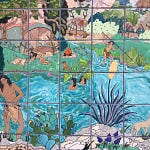
Leo Tolstoy